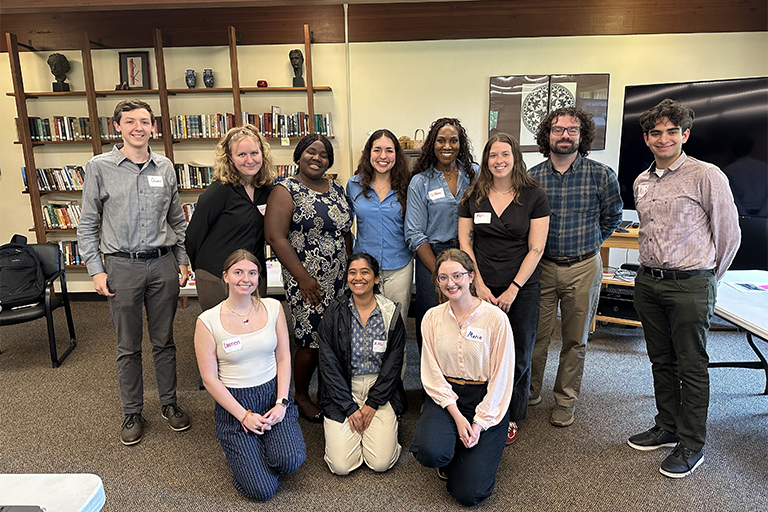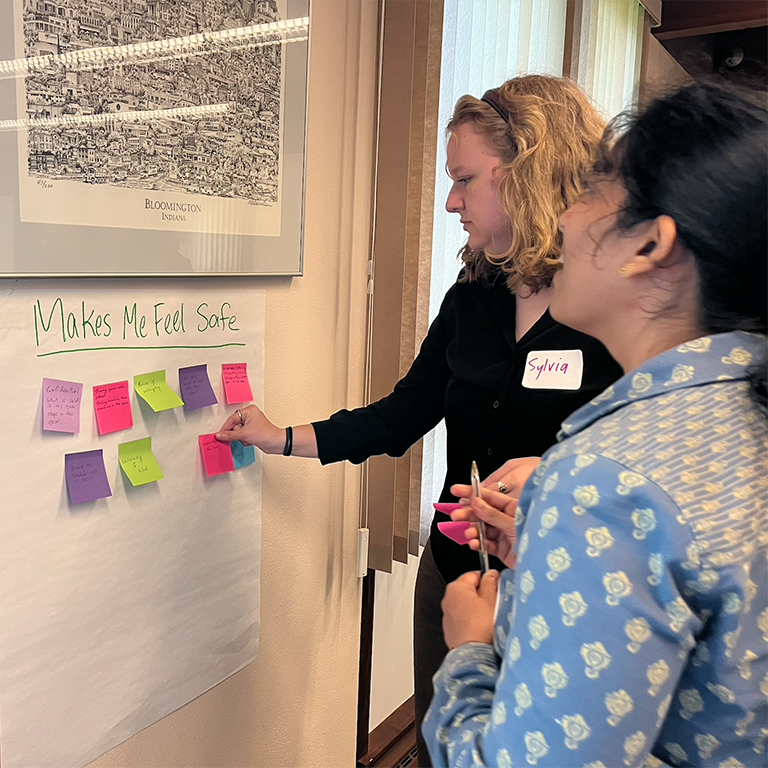A new partnership between Indiana University’s Environmental Resilience Institute (ERI) and nonprofit Groundswell aims to boost the resilience of Hoosier communities to extreme weather and rising energy bills.
Working with churches and other community-facing organizations, ERI and Groundswell are identifying opportunities to create community resilience hubs, trusted spaces equipped with solar and battery systems that can provide critical services to residents during power outages.
“When disaster strikes, people need a safe place to go to power medical devices, refrigerate medications, and charge phones to make emergency calls,” said Bill Brown, ERI assistant director of strategy and engagement. “As an added benefit, the organizations that host resilience hubs save on energy costs by using solar power. It’s a win-win for the host organizations and the communities. We’re proud to be working with Groundswell to bring these resilience hubs to Indiana.”
Community resilience hubs are particularly important during extreme weather events, which are increasing in frequency in Indiana and are the most common culprit of widespread power outages. In the last five years, Indiana has been affected by 31 severe storm events with losses exceeding $1 billion, according to the National Oceanic and Atmospheric Administration. That’s more than any previous 5-year period recorded by the agency.
During these times of crises, community resilience hubs serve as a haven for communities. Groundswell, a 501(c)(3) nonprofit focused on building local resilience and cutting energy bills, has already pioneered the community resilience hub model in three states, working with partners every step of the way, from funding to design to installation and operations.
To date, most of Groundswell’s community resilience hub partners have been churches, who often already have the trust of their communities and provide valued services to those in need.
“Groundswell prioritizes active community engagement and the voice of the community,” said Dan Limbago, Groundswell’s senior vice president of market development and deployment. “We want to enhance our partners’ abilities to serve their communities.”
This summer, Groundswell is training the McKinney Climate Fellows staffing ERI’s Community Resilience Hub Incubator and Indiana Resilience Funding Hub to build relationships with communities and guide potential resilience hub partners through the process.
During a June 18 training session at First United Methodist Church in Bloomington, fellows reflected on their experiences of going without electricity as well as how to establish safe, trusted relationships with communities.
To help local residents feel comfortable using community resilience hubs during times of emergency, it’s important for host organizations and their partners to create environments where community members know they’ll be safe and accepted, said Tiffani Lawson, Groundswell’s Mid-Atlantic energy programs lead. That requires regular communication and outreach to the community as well as efforts to ensure the hubs are accessible.
“One of my favorite words is ‘trust,’” Lawson said. “You want to empower every stakeholder, from church leaders to community members, and make them feel safe.”
About the Environmental Resilience Institute
Indiana University’s Environmental Resilience Institute connects a broad coalition of government, business, nonprofit, and community leaders to help Indiana and the Midwest better prepare for the challenges of environmental change. Together, we integrate research, education, and community to create environmental resilience and climate solutions—building a more sustainable, equitable, and prosperous future. Learn more at eri.iu.edu.
About Groundswell
Groundswell partners with local utilities, nonprofits, churches, and state agencies to deliver energy solutions. To date, Groundswell is on track to deliver more than $29 million in annual energy savings to 36,000 households and deploy more than 40 resilience hub projects across 12 states by 2030. Learn more at groundswell.org.





